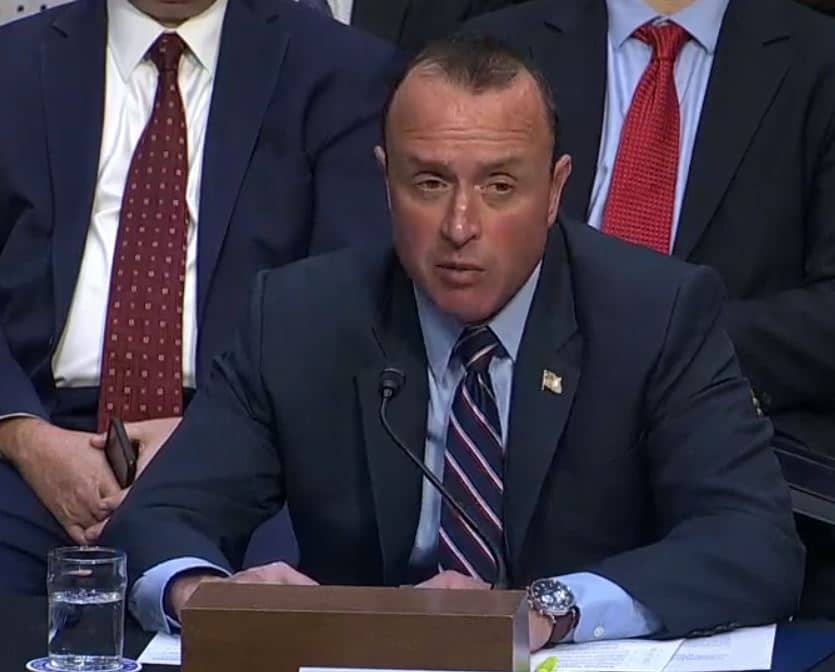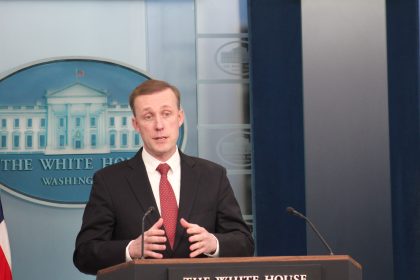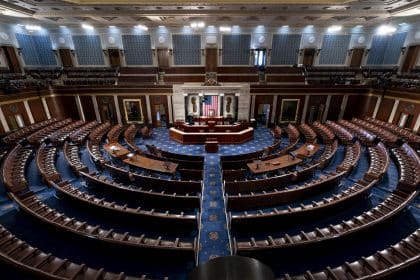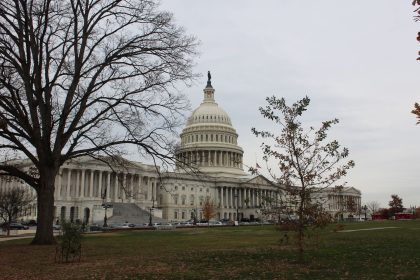Government Security Officials Warn Of Evolving Terrorist Threats

WASHINGTON – A top Homeland Security Department official described recent “major shifts” in terrorist threats to the United States during a Senate hearing last week.
Some threats come from residents of Syria and Iraq displaced by military struggles while others come from emerging technologies for which the U.S. government still is developing defenses, said David Glawe, the Homeland Security Department’s undersecretary of intelligence and analysis.
U.S. defense forces need “a better understanding of those individuals who have been forced into displaced persons camps within the region and subsequently potentially subjected to attempts from hardened ISIS fighters or sympathizers to radicalize them to violence,” Glawe said in his testimony before the Senate Homeland Security Committee.
Patrolling the U.S. border helps impede some foreign terrorists but their influence also extends through lawless regions of the world and the Internet, he said. As a result, they continue to recruit fighters in ways Western nations cannot control.
“These organizations may target our interests and aspire to target us here at home,” Glawe said.
In September, the Homeland Security Department released a “Strategic Framework” against terrorism. Glawe said it uses new assessment tools to review the Homeland Security Department’s past performance and update its plans for future action.
It relies heavily on technologies which Glawe did not describe.
Other threats are emerging domestically, often driven by ethnic hatred, he said.
“The prevalent trend of Americans driven by violent extremist ideologies or personal grievances to commit acts of terrorism, mass violence or targeted violence with little apparent warning creates a unique challenge to traditional law enforcement and investigation methods,” he said.
One day before the Senate hearing, the FBI announced the arrest of a 27-year-old man who plotted to bomb a historic synagogue in Pueblo, Colorado. Richard Holzer was arrested after two undercover FBI agents brought him fake pipe bombs he wanted to use to blow up the Temple Emanuel.
He was known for advocating anti-Semitic viewpoints, law enforcement officials said.
Other witnesses at the Senate hearing offered warnings similar to those of Glawe.
“The most persistent threats to the nation and to U.S. interests abroad are homegrown violent extremists, domestic violent extremists and foreign terrorist organizations,” said FBI director Christopher Wray.
Threats to the nation’s computer infrastructure have evolved since Sept. 11, 2001 from foreign-based attacks to domestic strikes by individuals inspired by terrorist organizations, Wray said. Their tactics might have changed but they continue to pose risks of “large-scale attacks” against U.S. information technology.
“The FBI assesses [homegrown violent extremists] are the greatest, most immediate terrorism threat to the homeland,” Wray said.
Social media provide other opportunities to recruit and train terrorists, he said.
“Due to online recruitment, indoctrination and instruction, [foreign terrorist organizations] are no longer dependent on finding ways to get terrorist operatives into the United States to recruit and carry out acts of terrorism,” Wray said in his testimony.
Russell Travers, acting director of the National Counterterrorism Center, warned against complacency by U.S. allies and partners in the struggle against terrorism.
He said the perception that terrorism is largely defeated in the Middle East is making some U.S. “partners” shift their resources to other concerns, thereby increasing the risk of a violent resurgence. Some of the terrorists’ new weapons include unmanned aerial vehicles, or drones.
Travers suggested more partnerships with some of the same companies developing the technologies.
“These partnerships have already borne fruit,” Travers said. “For instance, private sector action—enabled by government assistance—has greatly curtailed the accessibility of violent extremist content from ISIS on the Internet. However, subsequent terrorist adaptations, including the increased use of closed social media forums, only highlight the need to sustain and build on these partnerships.”























